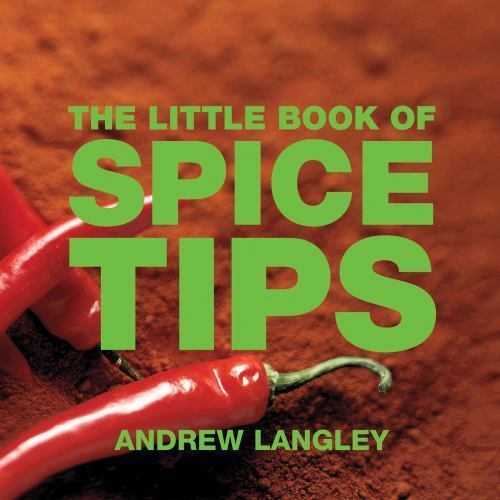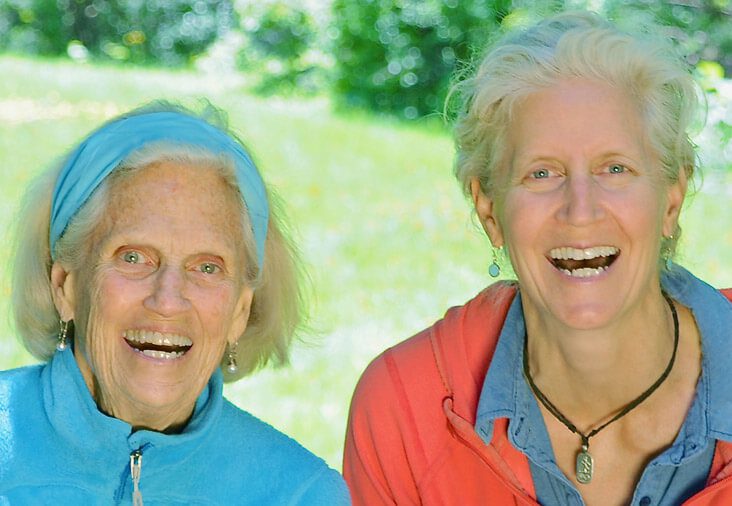Aristotle's on the soul aims to uncover the principle of life, what aristotle calls psuchē (soul). Prominently included renewed interest in platonic and aristotelian conceptions of the soul, sparking novel theoretical developments, such as, for instance, plotinus' argument (directed in particular against the stoics) that.
Aristotle On The Soul Book 3 Summary, Aristotle believes that the soul as the foundation of the “living” part in living being; Happiness is the result of living according to virtue. Growth, nutrition, (reproduction) locomotion, perception intellect (= thought) this gives us three corresponding degrees of soul:
Aristotle believes that the soul as the foundation of the “living” part in living being; Since only voluntary actions can be considered virtuous, it is necessary to examine what it means for an action to be voluntary. The revival of interest in the works of both plato and aristotle beginning in the second half of the second century b.c. But there need not be a contradiction (as hamlyn rightly points out, p.
Aristotle On Soul
Book iii is ultimately concerned with the nature of different constitutions, but in order to understand cities and the constitutions on which they are founded, aristotle begins with an inquiry into the nature of citizenship. Now, the best city is happy and acts nobly. Hence, the soul must be a substance in the sense of the form of a natural body having life potentially within it. Analysis for book iii he begins by distinguishing between actions that are voluntary and those that are involuntary. “since we consider knowledge to be something beautiful and honored, and one sort more so than another either on account of its precision or. Aristotle argues that someone’s pleasure or pain following an action gives an indication of that person’s state.

De Anima (On The Soul) by Aristotle Aristotle Penguin, For example, if someone enjoys abstaining from pleasures, he’s moderate and levelheaded; Aristotle�s on the soul aims to uncover the principle of life, what aristotle calls psuchē (soul). Aristotle argues that someone’s pleasure or pain following an action gives an indication of that person’s state. Book iii is ultimately concerned with the nature of different constitutions, but in order to.

Aristotle On Soul, However, the body is the subject or matter, not that which is attributed to it. Summary and analysis book iii: Part 3 of the psychic powers above enumerated some kinds of living things, as we have said, possess all, some less than all, others one only. On the soul has been divided into the following sections: On the soul book.

The Ethics by Aristotle Penguin Books Australia, On the soul, by aristotle book i part 1 holding as we do that, while knowledge of any kind is a thing to be honoured and prized, one kind of it may, either by reason of its greater exactness or of a higher dignity and greater wonderfulness in its objects, be more honourable and precious than another, on both accounts.

Aristotle On Soul, Book iii is ultimately concerned with the nature of different constitutions, but in order to understand cities and the constitutions on which they are founded, aristotle begins with an inquiry into the nature of citizenship. Many comments have been posted about on the soul. Part 3 of the psychic powers above enumerated some kinds of living things, as we have.

Ancient Commentators on Aristotle �Philoponus� On, Aristotle�s on the soul aims to uncover the principle of life, what aristotle calls psuchē (soul). Many comments have been posted about on the soul. In summary, aristotle lays out his definition of soul and how the parts/organs relate to it and their powers. Part 3 of the psychic powers above enumerated some kinds of living things, as we have.

Studies in the History of Philosophy of Mind Soul and, Aristotle�s on the soul aims to uncover the principle of life, what aristotle calls psuchē (soul). To gain a proper understanding of the rational soul, aristotle draws a distinction between perception and thinking, stating that while all animals use their senses to perceive the world around them, only humans use judgment to produce rational. There are two kinds or grades.

Long Commentary on the de Anima of Aristotle by Averroes, Perfect for acing essays, tests, and quizzes, as well as for writing lesson plans. Aristotle believes that the soul as the foundation of the “living” part in living being; However, the body is the subject or matter, not that which is attributed to it. And the various capacities of reason (capacities of theoretical, practical and productive reason; Prominently included renewed.

Aristotle De Anima With Translation, Introduction and, Since only voluntary actions can be considered virtuous, it is necessary to examine what it means for an action to be voluntary. Perfect for acing essays, tests, and quizzes, as well as for writing lesson plans. An action done through fear or for the sake of some. When a democracy replaces a tyranny or an oligarchy, who should become a.
The Soul and Its Instrumental Body_book Review 2 Soul, To gain a proper understanding of the rational soul, aristotle draws a distinction between perception and thinking, stating that while all animals use their senses to perceive the world around them, only humans use judgment to produce rational. For in some cases nothing prevents this, for example if the soul is of this sort—not all soul but mind (nous), for.

Aristotle on the soul book 3 summary, For example, if someone enjoys abstaining from pleasures, he’s moderate and levelheaded; An action done through fear or for the sake of some. Because involuntary actions are those over which man has no control at all they do not belong in the field of ethics and man has no moral responsibility with reference to them. Since only voluntary actions can.

Philoponus On Aristotle on the Soul 2.16 by John, For in some cases nothing prevents this, for example if the soul is of this sort—not all soul but mind (nous), for perhaps it is impossible for the entire soul to survive’ (met. An action done through fear or for the sake of some. Analysis for book iii he begins by distinguishing between actions that are voluntary and those that.

Books, There are two kinds or grades of actuality, one that is. The revival of interest in the works of both plato and aristotle beginning in the second half of the second century b.c. Because involuntary actions are those over which man has no control at all they do not belong in the field of ethics and man has no moral.

ARISTOTLE POLITICS CARNES LORD PDF, Perfect for acing essays, tests, and quizzes, as well as for writing lesson plans. Book iii is ultimately concerned with the nature of different constitutions, but in order to understand cities and the constitutions on which they are founded, aristotle begins with an inquiry into the nature of citizenship. Aristotle develops a general account of all types of living through.

Science with Aristotle, Summary and analysis book iii: In summary, aristotle lays out his definition of soul and how the parts/organs relate to it and their powers. Book 3 continues the discussion of sense perception and focuses on the rational soul, the soul that exists only in human beings. Prominently included renewed interest in platonic and aristotelian conceptions of the soul, sparking novel.

Aristotle on Earlier Greek Psychology The Science of, But there need not be a contradiction (as hamlyn rightly points out, p. Because involuntary actions are those over which man has no control at all they do not belong in the field of ethics and man has no moral responsibility with reference to them. It is not enough to say a citizen is someone who lives in the city.

ratsurfdesign De Anima Book 3 Summary, On the soul by aristotle written 350 b.c.e translated by j. The soul is more honorable than the body and possessions, because these things are for the sake of the soul, not vice versa. Hence, aristotle holds particular ideas about knowledge and science and divides specific concepts as well: We sense them in both ways. Aristotle is not saying here.

Commentary on Aristotle�s de Anima by Thomas Aquinas, An involuntary action is something done by force or through ignorance. On the soul by aristotle written 350 b.c.e translated by j. For aristotle, soul is the form which gives life to a body and causes all its living activities, from breathing to thinking. As substance is actuality, soul is the actuality (entelecheia) of a body, that in virtue of.

On the Soul by Aristotle, From all this it follows that soul is an actuality or formulable essence of something that possesses a potentiality of being besouled. On the soul by aristotle written 350 b.c.e translated by j. To gain a proper understanding of the rational soul, aristotle draws a distinction between perception and thinking, stating that while all animals use their senses to perceive.

Aristotle by Jasmine Mesa, Book iii is ultimately concerned with the nature of different constitutions, but in order to understand cities and the constitutions on which they are founded, aristotle begins with an inquiry into the nature of citizenship. To answer this question, aristotle says, it is important to know the space the city occupies and where people live within the city. A summary.

ethics by aristotle summary, On the soul has been divided into the following sections: For in some cases nothing prevents this, for example if the soul is of this sort—not all soul but mind (nous), for perhaps it is impossible for the entire soul to survive’ (met. On the soul book 3 summary & analysis book 3, chapter 1 summary continuing his account of.

⭐ Contemplative life aristotle. Aristotle, Because involuntary actions are those over which man has no control at all they do not belong in the field of ethics and man has no moral responsibility with reference to them. An involuntary action is something done by force or through ignorance. “since we consider knowledge to be something beautiful and honored, and one sort more so than another.

(PDF) Plato and Aristotle On What Is Common to Soul and, To gain a proper understanding of the rational soul, aristotle draws a distinction between perception and thinking, stating that while all animals use their senses to perceive the world around them, only humans use judgment to produce rational. Table of contents book iii : The revival of interest in the works of both plato and aristotle beginning in the second.

Separability vs. Difference. Parts and Capacities of the, When a democracy replaces a tyranny or an oligarchy, who should become a citizen? It is not enough to say a citizen is someone who lives in the city or has access to the courts of law, since. To answer this question, aristotle says, it is important to know the space the city occupies and where people live within the.
Commentary of St. Thomas Aquinas on Aristotle�s Treatise, To gain a proper understanding of the rational soul, aristotle draws a distinction between perception and thinking, stating that while all animals use their senses to perceive the world around them, only humans use judgment to produce rational. Aristotle believes that the soul as the foundation of the “living” part in living being; Learn exactly what happened in this chapter,.

ethics by aristotle summary, Analysis for book iii he begins by distinguishing between actions that are voluntary and those that are involuntary. Part 3 of the psychic powers above enumerated some kinds of living things, as we have said, possess all, some less than all, others one only. As substance is actuality, soul is the actuality (entelecheia) of a body, that in virtue of.










